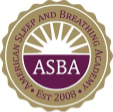Sleep Apnea is a serious medical disorder that puts patients at risk for numerous cardiovascular problems, endocrine problems including changes in Growth hormone, insulin resistance, thyroid hormone and cortisol levels. Other related problems include excessive tiredness, short term memory loss, cognitive problems, marital strife and severely increased risks of motor vehicle accidents.
Sleep apnea is vastly underdiagnosed and currently it is thought that well over 90% of patients with sleep apnea remain undiagnosed.
The guidelines for treatment of mild to moderate sleep apnea include oral appliance therapy and CPAP as first line therapies. Severe sleep apnea guidelines still recommend CPAP as first line treatment and oral appliances as an alternative when patients can't or won't tolerate CPAP.
These guidelines are expected to change after long-term studies (88 months) have shown equal outcomes for severe sleep apnea treated with oral appliances or CPAP.
Studies have long shown CPAP to be extremely effective however on 25% of patients utilize all night on a regular basis. Over 90% of patients offered a choice prefer oral appliance therapy over CPAP.
Oral Appliance therapy can cause tooth movement or bite changes over time.
These changes appear to be self limiting and are not sufficiently problematic for most patients to discontinue treatment. The nature of the changes are apparently healing of the stomatognathic musculature and TMJoints.
Evaluation of the end point of these changes in my office show that patients tested frequently heal to their neuromuscular trajectory. Even though the bites appear to be malocclusion patients rarely experience long-term issues.
The neuromuscular trajectory is the physiologic closing path of the mandible from rest position to first tooth contact. Because this appearantly is a natural position to heal it may be ideal to restore bites to this position. Some patients can have minor equilibration or coronoplasty to equalize the bite while others can be restored prosthetically or orthodontically. Epigenetic (DNA Appliance) orthodontics is an excellent method of correcting the bite on a long term basis.
There is no specialty in TMJ or occlusal positioning but Neuromuscular Dentists understand the concepts of neuromuscular trajectory. Finding a neuromucular dentist can be difficult.
The best place to locate a neuromuscular dentist is thru ICCMO, the International College of CranioMandibular Orthopedics at their website www.ICCMO.org or http://www.OcclusalAuthority.com.
More information on Sleep Apnea and TMJ disorders are available from the NIH at http://www.nhlbi.nih.gov/files/docs/workshops/tmj_wksp.pdf which contains an excellent report "CARDIOVASCULAR AND SLEEP-RELATED CONSEQUENCES OF TEMPOROMANDIBULAR DISORDERS"
More information is available at http://www.thinkbetterlife.com and at http://tmjtherapycentre.com/tmj-disorders-are-more-frequent-migraine-episodic-tension-type-headaches-and-chronic-daily-headache-
Request A Personal Consultation
1-847-533-8313






Disclaimer: Official website of I Hate CPAP & Dr. Ira Shapira. The information throughout this snoring treatment website is not intended to be taken as medical advice. The information provided by I Hate CPAP is intended to provide general information regarding comprehensive snoring and sleep apnea treatment services for patients in the greater Chicago, IL area as well as nationwide and worldwide. This website is not intended for viewing or usage by European Union citizens. Read our ADA compliance disclosure.
Copyright © All rights reserved. View our sitemap. Website Designed, Developed, and Optimized by Page 1 Solutions, LLC.
